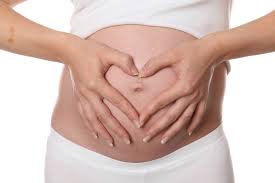FERTILITY, INFERTILITY, STERILITY
Supplements to promote fertility

We define fertility reproduction capability of living organisms and is represented by the number of children per individual. Fertility differs from fecundity that instead expresses the potential reproductive capacity of an individual.
The WHO, World Health Organization, also defines:
sterility the situation of a pair in which one or both members are suffering from a condition that does not make possible permanent physical conception. This occurs in cases of azoospermia, premature menopause or congenital absence of the uterus.
infertility, the situation of a couple, for reasons related to the man or woman can not get pregnant after a long period of constant relations and unprotected. The term infertility, and then does not refer to an absolute condition, but in a situation potentially resolvable and linked to one or more interfering factors.
The two terms therefore, sterility and infertility, are not synonymous.
Western populations have suffered a significant drop in fertility than in the past, mainly due to the recent habit of delaying the time of pregnancy for social and cultural reasons. It is estimated that each year in Italy there are 20,000 to 45,000 couples who have difficulty to procreate.
Link between fertility and age of woman and man
In women age affects more than the man.
Consider a typical situation, without conditions, with a regular cycle and targeted reports:
At age 15, a woman has a 40-50% chance of conceiving per cycle.
At age 25, the percentage is 30-35%.
At age 35, the percentage is 20-25%.
At 45 years, the percentage is 3-5%.
It 'important to note that the outward appearance does not coincide with the state of the reproductive organs: women develop at puberty a wealth of egg cells that is not renewed over time (unlike the male sperm that are produced again every 3 months) but even decreases over time and degrades more ova are old and most likely will have to carry with chromosomal abnormalities or have problems of cell division after fertilization.
In humans, on the other hand age affects fertility because fewer sperm are continuously produced by the male reproductive organs. The quantity and quality may, however, worsen with age.
Causes of Infertility
• 30% female causes early menopause, endometriosis, obstructions or lesions of the fallopian tubes, uterine abnormalities and cervical or ovulatory problems.
• 30% male causes: changes in the field of testicular obstruction of the ducts, prostate diseases, abnormal ejaculation or erection and alteration of the seed.
• 20% combined causes: in which responsibility is shared by both members of the couple.
• 20% without explanation: you can not determine the cause.
Infertility is divided into two types: primary and secondary infertility. The first relates to people who have never had children, and is the most serious, while the second relates to those persons who have already had children before, but that at present no longer able to conceive.
Female infertility is mainly due to:
age
endogenous causes: tube-peritoneal factor, endometriosis, ovulatory disorders and other clinical disorders. other serious diseases: leiomyoma, sexually transmitted diseases, obesity, diabetes, thyroid disease, depression.
lifestyle: sedentary lifestyle, poor diet, use of drugs, smoking, alcohol, stress ...
Male infertility is mainly due to:
endogenous causes: inflammation of the genito-urinary tract, prostate disease, past traumas, chromosomal genetic disorders and other diseases clinics.
other serious diseases
environmental factors: pollution, pollution ...
lifestyle: sedentary lifestyle, poor diet, use of drugs, smoking, alcohol, stress ...
The majority of men with reproductive difficulties are not aware they have a problem.
Help to improve the fertility comes from a healthy lifestyle: proper nutrition, practice of regular physical activity ...
Supplements to promote fertility
